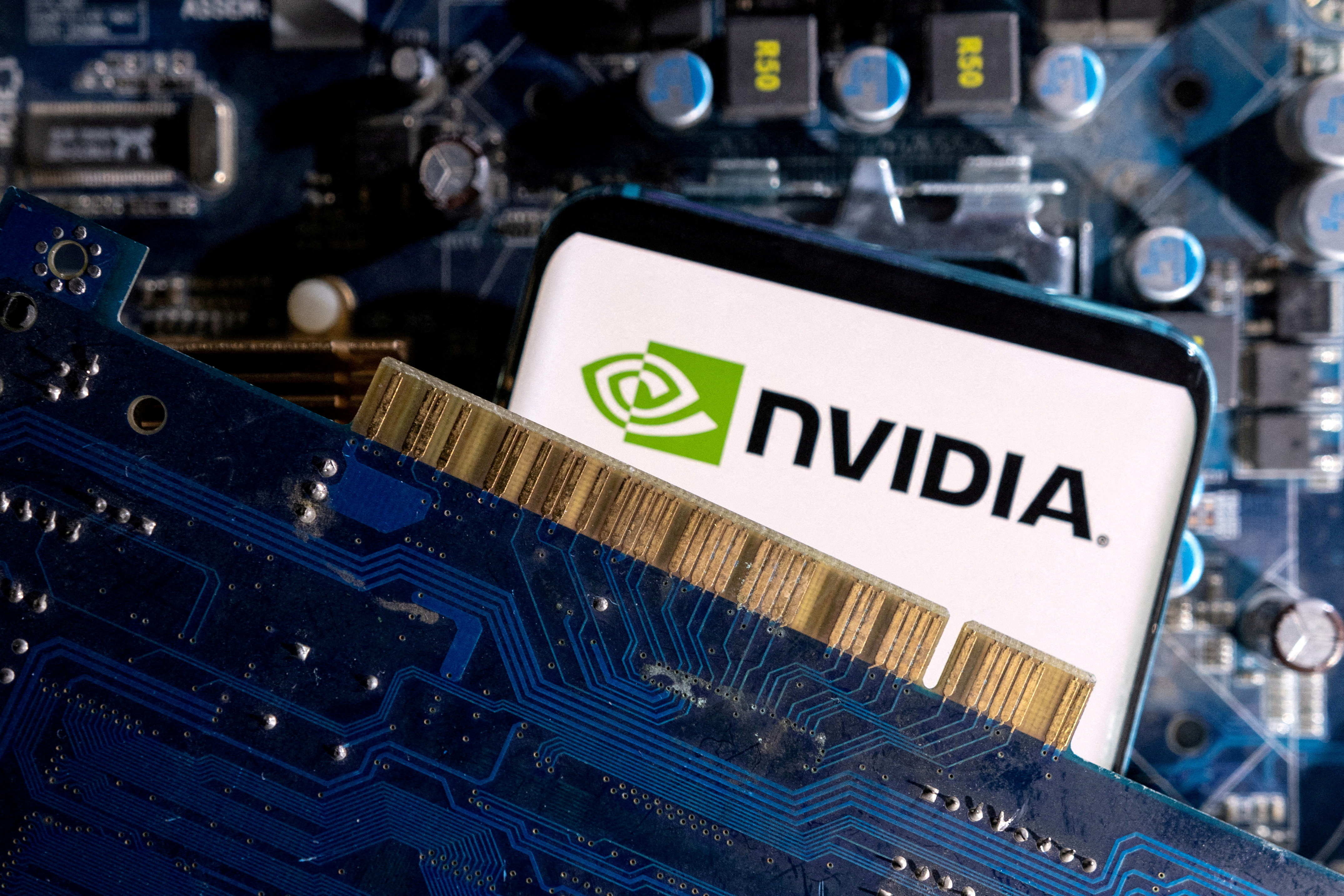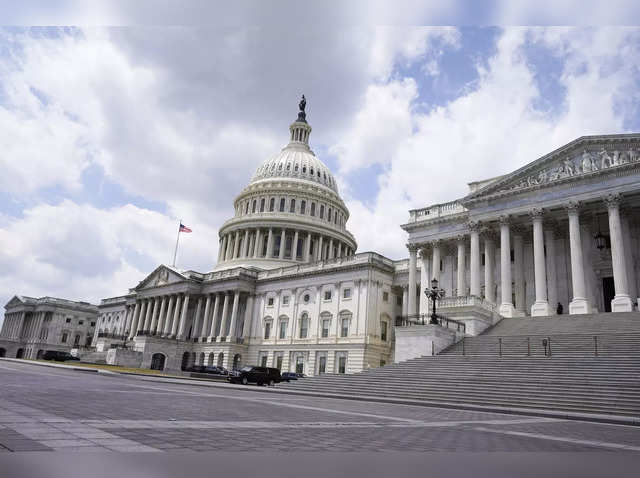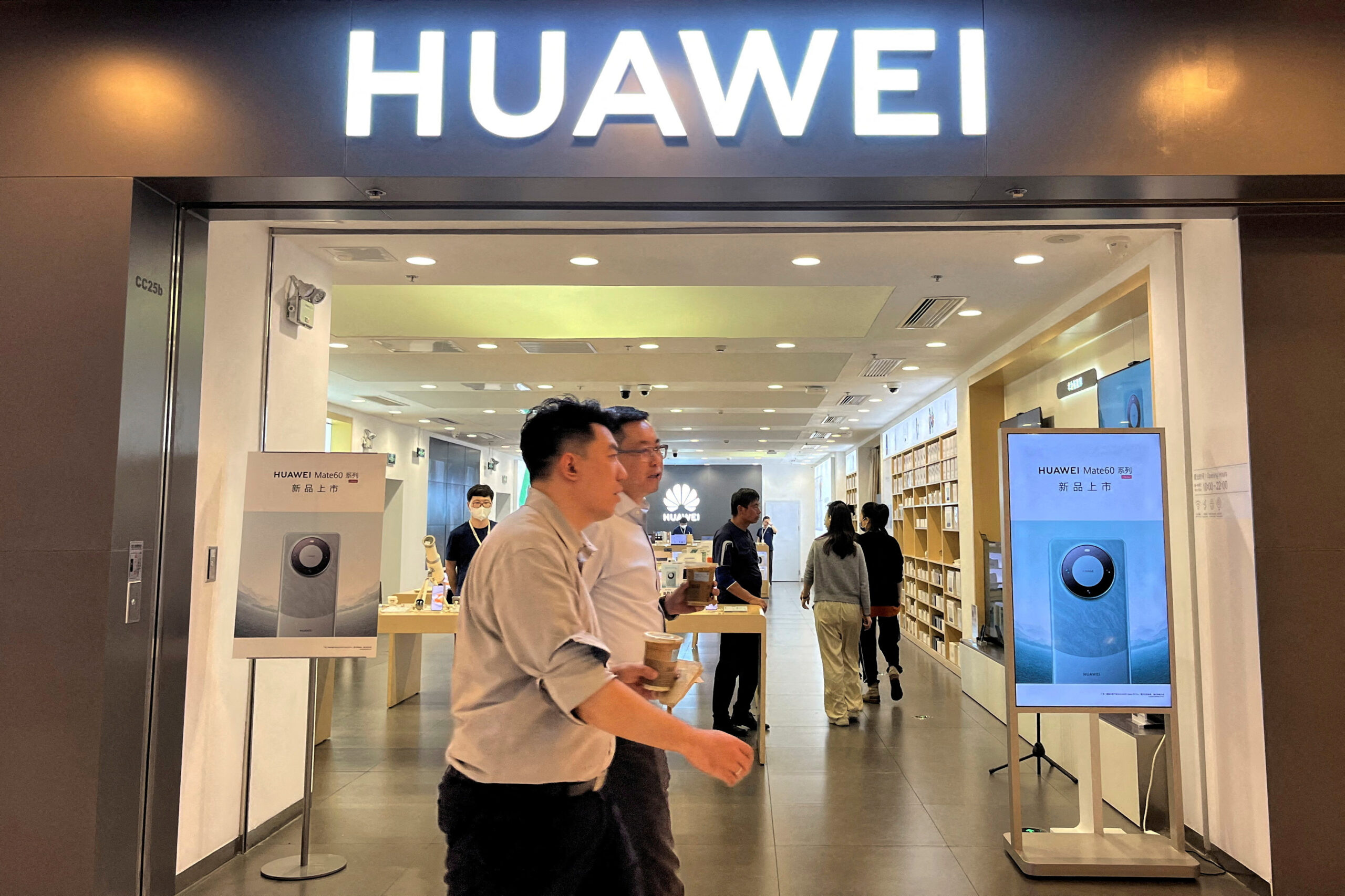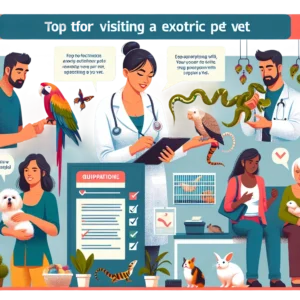Congress to Hold New Ai Hearings As It Works to Craft Safeguards
Congress will hold new AI hearings as it crafts safeguards to address concerns. These hearings are crucial for developing effective measures to regulate AI technologies and ensure their responsible and ethical use.
As AI continues to progress rapidly, it brings both immense potential and significant risks. It is essential for policymakers to thoroughly understand these technologies and their implications to enact appropriate safeguards. By discussing AI advancements in hearings, Congress can gather expert insights, explore potential risks, and shape regulations that foster innovation while protecting against potential harm.
These hearings will play a vital role in shaping the future of AI, promoting accountability, and instilling public trust in these transformative technologies.
The Role Of Congress In Crafting Ai Safeguards
Congress is taking decisive action to address the potential risks of AI by holding new hearings and crafting safeguards. With their important role in this matter, they are gathering information and working towards implementing necessary precautions to ensure the responsible development and use of artificial intelligence.
Understanding The Congressional Role:
- The United States Congress plays a crucial part in shaping regulations and policies related to artificial intelligence (AI) technology.
- Congress has the responsibility to ensure that AI is developed and used in a manner that serves the best interests of society as a whole.
- The congressional role involves understanding AI technology, its potential benefits, and its risks, and then developing regulations and safeguards that strike a balance.
Examining Potential Ai Dangers:
- Congress recognizes the potential dangers associated with AI and aims to address these concerns through legislation.
- Potential dangers of AI include job displacement, biased algorithms, security risks, and privacy concerns.
- Congress aims to examine these dangers thoroughly to inform the crafting of safeguards that mitigate the risks and promote responsible AI development and deployment.
The role of Congress in crafting AI safeguards is an essential one, as it ensures that AI technology is developed and used responsibly. By understanding the congressional role and examining the potential dangers, Congress can enact regulations and safeguards that protect against risks associated with AI.
This proactive approach ensures that AI benefits society while minimizing its potential negative impacts.
Recent Advancements And Concerns: A Need For Safeguards
Congress will be holding new AI hearings to create safeguards as they work towards addressing recent advancements and concerns in the field.
Congress has recognized the rapid advancements in artificial intelligence (AI) technology and the need to identify potential risks and concerns. To address this, Congress plans to hold new hearings as it actively works towards crafting safeguards for AI. Let’s delve into the recent advancements and concerns surrounding AI, shedding light on the necessity of implementing protective measures.
Investigating Ai Technology Advancements:
- AI’s rapid growth: The field of AI has experienced significant advancements in recent years, driven by breakthroughs in machine learning, natural language processing, and computer vision. These advancements have led to innovations like autonomous vehicles, voice assistants, and facial recognition technologies.
- Enhancing efficiency and productivity: AI has the potential to revolutionize various industries by automating tasks, streamlining operations, and improving overall efficiency. It can help businesses enhance customer experiences, optimize supply chains, and make data-driven decisions.
- Machine learning algorithms: AI systems rely on machine learning algorithms that can analyze vast amounts of data and extract valuable insights. These algorithms enable AI models to learn from past experiences and make accurate predictions or recommendations.
Identifying Potential Risks And Concerns:
- Ethical implications: As AI becomes more pervasive, concerns surrounding ethical implications arise. The decisions made by AI systems should align with ethical principles, ensuring fairness, transparency, and accountability. Cases of biased algorithms or AI misuse call for safeguards to protect against unintended consequences.
- Job displacement: The automation capabilities of AI lead to concerns regarding job displacement. While AI can eliminate repetitive and mundane tasks, it also raises questions about the impact on employment. Crafting safeguards to address this issue will allow for a smoother transition and a focus on reskilling and upskilling the workforce.
- Privacy and data security: With AI’s reliance on vast amounts of data, ensuring privacy and data security becomes paramount. Safeguards must be in place to protect individuals’ sensitive information and prevent unauthorized access or breaches. Striking a balance between data accessibility and privacy is crucial.
- Bias and discrimination: Machine learning algorithms can perpetuate bias and discrimination if not carefully trained and monitored. Fairness in AI systems should be a priority, avoiding biased outcomes that could harm certain individuals or marginalized groups.
By investigating AI technology advancements and identifying potential risks and concerns, Congress recognizes the urgent need for safeguards. Addressing ethical implications, job displacement, privacy and data security, as well as bias and discrimination, will ensure the responsible and beneficial deployment of AI technology.
As Congress holds new AI hearings, the goal is to shape regulations that support innovation while safeguarding against potential risks, protecting individuals, and fostering public trust in AI.
Assessing Legal And Ethical Implications
As Congress moves forward with crafting safeguards for AI, new hearings will be held to assess the legal and ethical implications. This process aims to ensure responsible and accountable use of artificial intelligence technology.
Congress to Hold New AI Hearings As It Works to Craft Safeguards
Artificial intelligence (AI) continues to transform various industries, from healthcare to transportation. However, as AI technology advances, so do the legal and ethical concerns surrounding its use. You can expect Congress to stay ahead of these developments, with new AI hearings on the horizon as they work towards crafting safeguards.
In this section, we will examine two critical aspects under consideration: AI’s impact on privacy and data security, as well as potential algorithmic biases.
Examining Ai’S Impact On Privacy And Data Security:
- AI’s potential to collect and process vast amounts of personal data raises significant privacy concerns. As Congress seeks to craft safeguards, they will likely focus on key aspects such as:
- Data collection: Assessing the extent of data collection and establishing limitations to protect individuals’ privacy rights.
- Data storage: Ensuring that the storage of personal data adheres to strict security measures to prevent unauthorized access or breaches.
- Data anonymization: Exploring methods to anonymize data, protecting the privacy of individuals while still allowing AI systems to operate effectively.
- Congress will also consider the potential risks associated with AI’s use in surveillance and monitoring. Striking a delicate balance between public safety and individual privacy will be a priority during their AI hearings.
Evaluating Potential Algorithmic Biases:
- Algorithmic biases in AI systems can lead to unfair or discriminatory outcomes. When crafting safeguards, Congress will likely focus on the following areas:
- Dataset biases: Assessing the datasets used to train AI systems and eliminating biases that may exist within the data.
- Transparency: Encouraging AI developers to provide transparency regarding the algorithms employed and the potential biases they may introduce.
- Regular audits: Implementing a system of regular audits to evaluate and mitigate any biased outcomes that arise from AI systems.
- By addressing potential algorithmic biases, Congress aims to ensure that AI technology is fair, accountable, and free from discrimination.
As Congress prepares for new AI hearings, they will delve into the legal and ethical implications surrounding AI’s impact on privacy and data security, as well as potential algorithmic biases. These hearings will provide valuable insights and shape the development of guidelines and safeguards that promote responsible and ethical AI usage.
Stay tuned as we continue to follow these important discussions.

Credit: www.reuters.com
Understanding Economic And Social Implications
Congress plans to hold new hearings on AI as it seeks to develop safeguards that address both economic and social implications. These hearings aim to understand the potential risks and benefits of AI technology and ensure that appropriate regulations are put in place to protect society.
As Congress ramps up its efforts to better understand the economic and social implications of artificial intelligence (AI), new hearings have been scheduled to delve deeper into the topic. With the aim of creating safeguards for AI implementation, these hearings will focus on examining two critical aspects: the effect of AI on the workforce and job displacement, as well as the potential benefits and risks for society.
By analyzing these areas, policymakers will be better equipped to navigate the challenges and opportunities presented by the rapid advancements in AI technology.
Analyzing Ai’S Effect On Workforce And Job Displacement:
- Increased automation: As AI systems become more sophisticated, there is a growing concern that automation may replace certain job functions. By analyzing the impact of AI on the workforce, policymakers hope to gain a comprehensive understanding of potential job displacement.
- Skill requirements: The adoption of AI technology in various industries may lead to a shift in the skill requirements for certain jobs. It is crucial to assess how AI will shape the future job market and identify the skills that will be in high demand.
- Income inequality: AI implementation has the potential to exacerbate income inequality. It is essential to analyze how AI’s impact on the workforce may affect income distribution and develop strategies to mitigate any adverse effects.
- Job creation: While there are concerns about job displacement, AI also has the potential to create new roles and opportunities. Policymakers aim to assess the likelihood of job creation and explore ways to harness AI’s potential for positive workforce transformations.
Assessing The Potential Benefits And Risks For Society:
- Enhanced efficiency: AI technology has the potential to revolutionize various industries by improving efficiency and productivity. Assessing these benefits will provide valuable insights into how AI can positively impact society.
- Ethical implications: As AI becomes more prevalent, it raises ethical concerns related to privacy, biases, and accountability for decision-making. Evaluating the potential risks associated with AI implementation is crucial to ensure that policies and regulations are in place to address these challenges.
- Healthcare advancements: AI has the potential to revolutionize healthcare by enabling faster diagnoses, personalized treatment plans, and improved patient outcomes. It is important to assess the potential benefits and risks of integrating AI into healthcare systems.
- Social integration: AI technologies, such as virtual assistants and social robots, have the potential to enhance social integration for individuals with disabilities, the elderly, and those in remote areas. Understanding the implications of AI on social dynamics will help shape policies that promote inclusivity and equal access to AI-driven services.
By thoroughly analyzing AI’s effect on workforce and job displacement, as well as assessing the potential benefits and risks for society, Congress aims to craft robust safeguards that protect individuals and promote responsible AI development. These hearings will provide a platform for experts to share insights, opinions, and recommendations that will guide policymakers in shaping a future where AI serves as a tool for the betterment of society as a whole.
Collaborating With Ai Experts And Industry Leaders
Congress is set to organize new AI hearings to develop safeguards in collaboration with experts and industry leaders. This initiative aims to create effective measures for the responsible and ethical use of artificial intelligence technology.
Congress is taking a proactive approach by initiating new AI hearings to develop safeguards for this rapidly emerging technology. Engaging with technology experts and AI researchers, as well as soliciting advice from industry leaders, is a crucial step in the process.
Let’s explore how Congress is fostering collaboration with these key stakeholders:
Engaging With Technology Experts And Ai Researchers:
- Building bridges with technology experts and AI researchers is essential to gain insights into the capabilities and potential risks associated with AI technologies.
- Seeking input from these experts can help Congress understand the latest advancements, challenges, and best practices in the field of AI.
- Congress can leverage the expertise of these specialists to shape legislation that effectively addresses concerns related to AI ethics, privacy, and security.
Soliciting Advice From Industry Leaders:
- Empowering industry leaders to contribute their insights and perspectives helps ensure that any AI regulations strike the right balance between innovation and accountability.
- Collaboration with industry leaders allows Congress to tap into the practical experiences and real-world applications of AI, enabling lawmakers to craft effective policies based on the needs of various sectors.
- Government-industry collaboration promotes transparency, facilitates knowledge sharing, and enables the development of safeguards that are well-aligned with industry practices and standards.
By actively engaging with AI experts and industry leaders, Congress can establish an inclusive and comprehensive approach to AI regulation. This collaborative effort allows for the creation of safeguards that will protect society and foster the responsible development and deployment of AI technologies.
Studying International Ai Regulations And Standards
Congress is set to hold hearings on international AI regulations and standards as it aims to create effective safeguards. The focus is on crafting guidelines to ensure the responsible development and use of artificial intelligence technology.
The rapid advancement of artificial intelligence (AI) has prompted governments around the world to examine and implement regulations to ensure responsible and ethical AI development and deployment. Congress is now taking the initiative to hold new AI hearings, focusing on studying international AI regulations and standards.
By learning from global approaches to AI safeguards and assessing the effectiveness of existing regulations, lawmakers aim to craft comprehensive legislation that addresses the unique challenges posed by AI technologies.
Here is an overview of the key aspects being explored during these hearings:
- Global perspectives on AI safeguards: Congress recognizes the importance of studying international AI regulations and standards to gain insights into different approaches and best practices. By understanding how other countries are addressing AI challenges, lawmakers can draw upon a wide range of knowledge and experiences to develop effective safeguards for the United States.
- Comparing regulatory frameworks: One aspect of the hearings involves assessing the effectiveness of existing regulations worldwide. By examining various regulatory frameworks, lawmakers can identify potential gaps and areas for improvement in current AI policies. This analysis can further inform the development of comprehensive and robust safeguards to prevent any misuse or unintended consequences of AI technologies.
- Ensuring ethical AI: The hearings will also focus on ethical considerations in AI development and use. This includes discussions on principles such as transparency, accountability, and fairness. By incorporating ethical guidelines into AI legislation, Congress aims to promote AI systems that are trustworthy, unbiased, and respectful of human rights.
- Balancing innovation and regulation: Congress understands the importance of fostering innovation in AI while simultaneously setting up appropriate regulations to ensure AI technologies do not cause harm. The hearings will explore ways to strike a balance between promoting AI advancements and implementing safeguards to protect individuals and society as a whole.
- Collaboration with international partners: Recognizing that AI is a global issue, Congress intends to collaborate with international partners to develop harmonized regulations. By coordinating efforts with other countries, policymakers can establish consistent standards that facilitate the responsible and beneficial deployment of AI technologies across borders.
By carefully studying international AI regulations and standards, Congress is taking a proactive approach to crafting comprehensive safeguards for the United States. Through these hearings, lawmakers aim to create a regulatory framework that enables innovation, protects individuals and society, and establishes the United States as a global leader in responsible AI development and deployment.
Balancing Innovation With Responsible Ai Development
As Congress aims to establish safeguards, they will hold new AI hearings to ensure responsible AI development. This will strike a careful balance between innovation and ethical considerations, addressing the need for regulations in the fast-growing field of artificial intelligence.
As technology continues to advance, the development and implementation of artificial intelligence (AI) have become an integral part of various industries. However, alongside the numerous opportunities that AI presents, concerns about its responsible use and ethics have also emerged. The United States Congress has recognized the need to address these concerns and is now holding new AI hearings to craft safeguards that strike a balance between innovation and responsible AI development.
Promoting Innovation While Ensuring Ethical Ai Use:
- Safeguarding user privacy: Congress aims to establish policies that protect user data privacy and prevent its misuse in AI applications.
- Nurturing AI education and research: Efforts are being made to support educational programs and research initiatives that promote responsible development and usage of AI.
- Encouraging public-private partnerships: Collaborative efforts between the government and industry stakeholders are being encouraged to develop guidelines and frameworks that ensure AI advancements align with ethical considerations.
- Fostering transparency and explainability: Congress seeks to promote transparency in AI systems, facilitating understanding of the decision-making processes involved and preventing biased outcomes.
- Addressing bias and discrimination: Legislative measures are being considered to mitigate bias in AI algorithms, ensuring fairness and non-discriminatory practices.
- Monitoring AI development and deployment: Congress aims to establish regulatory mechanisms and frameworks to monitor the development and deployment of AI technologies, ensuring compliance with ethical principles.
Encouraging Responsible Ai Research And Development:
- Ethical considerations in AI design: Congress recognizes the importance of incorporating ethical principles into the design phase of AI systems to ensure responsible and accountable technology.
- Balancing risks and rewards: Legislation is being crafted to assess the risks associated with different AI applications and to establish frameworks for responsible use that outweigh potential harms.
- Public engagement and input: Congress plans to involve the public in shaping AI policies and guidelines to address concerns from various stakeholders and ensure inclusiveness.
- Impact assessments and continuous evaluation: Efforts are underway to establish a framework for assessing the societal impact of AI technologies and regularly evaluating their ethical implications.
As Congress continues to hold new AI hearings, it aims to strike the delicate balance between encouraging innovation and ensuring responsible AI development. These efforts not only protect individuals’ rights and privacy but also promote public trust in AI systems.
By promoting transparency, fostering collaboration, and setting guidelines, Congress aims to establish a responsible and ethical framework for AI usage that benefits society as a whole.
Addressing Evolving Ai Technology
Congress will hold new AI hearings as it crafts safeguards to address the evolving technology. They aim to ensure effective regulation and protect against potential risks, keeping pace with advancements in artificial intelligence.
Recognizing The Rapid Pace Of Technological Advancements
In today’s fast-paced world, technological advancements are happening at an unprecedented rate. The field of artificial intelligence (AI) is no exception, with new developments emerging seemingly every day. The Congress has recognized the need to stay ahead of the curve and ensure that appropriate safeguards are in place to regulate this rapidly evolving technology.
With that in mind, they have scheduled new AI hearings to gather insights and take action.
To effectively address the challenges posed by the evolving AI technology, the Congress needs to anticipate and prepare for future scenarios. This involves considering potential risks and identifying measures to minimize them. Here’s how they plan to tackle the task at hand:
- Research and Development Initiatives: Congress aims to allocate resources towards research and development initiatives that focus on AI technology. By promoting innovation and exploring new possibilities, they aim to maintain a comprehensive understanding of the field.
- Collaboration with Experts: Recognizing the complexity of AI technology, Congress plans to collaborate with experts from various domains. This multidisciplinary approach will enable lawmakers to gain diverse insights and make well-informed decisions concerning AI safeguards.
- Continuous Learning and Adaptation: As AI technology continues to evolve, so should the regulations and policies surrounding it. Congress acknowledges the need for ongoing learning and adaptation to keep up with the ever-changing landscape of AI.
- Ethical Considerations: Congress aims to prioritize ethical considerations when crafting safeguards for AI. They recognize the importance of transparency, accountability, and fairness in AI development and implementation. By addressing these aspects, they intend to minimize any potential negative impact on society.
- Public Input and Feedback: Congress understands the significance of public input and public trust. Seeking feedback from citizens, industry professionals, and other stakeholders will help ensure that the regulations created are balanced and inclusive, benefiting society as a whole.
Anticipating future challenges and emerging risks, Congress remains committed to crafting effective safeguards for AI technology. By recognizing the rapid pace of technological advancements and striving to keep up with them, they aim to ensure the responsible and beneficial utilization of AI in various sectors.
Together, these efforts will contribute to a more secure and ethically-driven AI landscape.
Considering Public Opinion And Transparency
Congress plans to hold new hearings on AI, prioritizing public opinion and transparency as it works to develop effective safeguards. This approach emphasizes accountability and ensures that the concerns and expectations of the public are taken into consideration.
Incorporating Public Input In Ai Policy-Making Process
- Public input is crucial in shaping AI policies as it ensures diverse perspectives are considered.
- By involving the public in the decision-making process, Congress aims to establish safeguards that align with the expectations and concerns of the people.
- Congress plans to hold hearings where experts and stakeholders can offer insights and recommendations on AI-related matters.
- Public input will help in crafting effective regulations that strike a balance between innovation and responsible AI development.
Promoting Transparency In Ai Development And Deployment
- Transparency in AI development and deployment is one of the key focus areas for Congress.
- This emphasis aims to address concerns related to accountability, bias, and potential ethical implications.
- Promoting transparency means ensuring that the inner workings and decision-making processes of AI systems are accessible and understandable.
- It also involves providing clear information about how AI algorithms operate, the data used, and the potential impact on various stakeholders.
- Transparent AI development and deployment will build trust among the public and enable better evaluation and mitigation of risks.
Overall, Congress recognizes the importance of incorporating public input and promoting transparency in the AI policy-making process. By involving various voices and ensuring accountability, they strive to create effective safeguards that address societal concerns while fostering responsible AI development and deployment.
Building Consensus For Effective Safeguards
Congress is holding new hearings as it crafts safeguards for AI, aiming to build consensus for effective measures to address potential risks.
Congress to Hold New AI Hearings As It Works to Craft Safeguards
The ongoing emergence of artificial intelligence (AI) technologies raises important questions about how these innovations should be regulated. With the aim of addressing these concerns, Congress is set to hold new hearings that focus on developing effective safeguards for AI.
In this blog post, we will delve into the topic of building consensus for effective safeguards and explore how political and partisan differences can be navigated to advance bipartisan efforts towards comprehensive AI regulations.
Navigating Political And Partisan Differences:
- Collaboration among lawmakers: Encouraging lawmakers from different political parties to come together and collaborate on AI regulations is crucial for generating effective safeguards. By fostering open dialogue and finding common ground, bipartisan efforts can thrive.
- Identifying shared goals: Despite differing political ideologies, lawmakers can find shared goals when it comes to the regulation of AI. Emphasizing the potential risks and benefits of AI technology can help bridge the gap between parties.
- Expert commissions and consultations: Engaging independent experts from various fields can provide valuable insights and guidance on AI regulations. By seeking input from diverse perspectives, lawmakers can work towards developing comprehensive and unbiased safeguards.
- Public engagement: Including public input in the decision-making process is essential for building consensus. Public forums and feedback mechanisms can help ensure that AI regulations align with the values and aspirations of the general population.
By employing these strategies, Congress can navigate political and partisan differences, thereby advancing bipartisan efforts towards comprehensive AI regulations. Building consensus is key to fostering public trust and ensuring that AI technologies are developed and deployed responsibly. As AI continues to shape our future, it is imperative that safeguards are in place to protect individuals, communities, and society as a whole.
Congress plays a crucial role in this process by bringing stakeholders together and crafting policies that strike the right balance between innovation and protection. Let us now delve deeper into the advancement of bipartisan efforts towards comprehensive AI regulations.
Frequently Asked Questions Of Congress To Hold New Ai Hearings As It Works To Craft Safeguards
How Is Congress Involved In Ai Safeguard Development?
Congress is actively holding AI hearings to craft safeguards for the technology. They recognize the importance of creating regulations that protect individuals and ensure that AI is used responsibly in various industries.
Why Are Hearings Being Held On Ai By Congress?
Hearings are being held to address the potential risks and impacts of AI on society. Congress aims to gather insights from experts and stakeholders to create effective safeguards, balancing innovation and ethical considerations.
What Are The Objectives Of Crafting Ai Safeguards?
The objectives behind crafting AI safeguards are to ensure the protection of people’s privacy, prevent biased or discriminatory outcomes, encourage transparency and accountability in AI algorithms, and promote responsible development and deployment of AI technologies.
How Will Ai Safeguards Benefit Society?
AI safeguards will protect individuals from potential abuses of AI technology, such as privacy breaches and biases. They will help foster trust in AI systems, encourage responsible innovation, and ensure that the benefits of AI are accessible to all, while minimizing any negative impacts.
Conclusion
As Congress moves forward with new AI hearings, it is clear that safeguarding this emerging technology is a priority. The discussions and debates surrounding AI have shown that there is a need for regulations and guidelines to prevent potential risks and ensure its responsible and ethical use.
The hearings will provide a platform for experts to share their perspectives, concerns, and recommendations, helping lawmakers craft policies that strike the right balance between innovation and protection. With AI becoming more pervasive in our daily lives, it is essential to address issues such as privacy, bias, and accountability.
Congress’ commitment to understanding these challenges and seeking input from various stakeholders is a positive step forward. By taking a proactive approach to regulation, lawmakers can create an environment where AI can thrive while safeguarding against any unintended consequences. As we move towards the future, collaboration between policymakers, industry experts, and the public will be crucial in shaping AI regulations.
The ultimate goal should be to harness the transformative power of AI while ensuring its responsible and fair deployment. Congress’ dedication to holding these hearings demonstrates its commitment to striking this balance and creating a bright, AI-powered future for all.














Post Comment